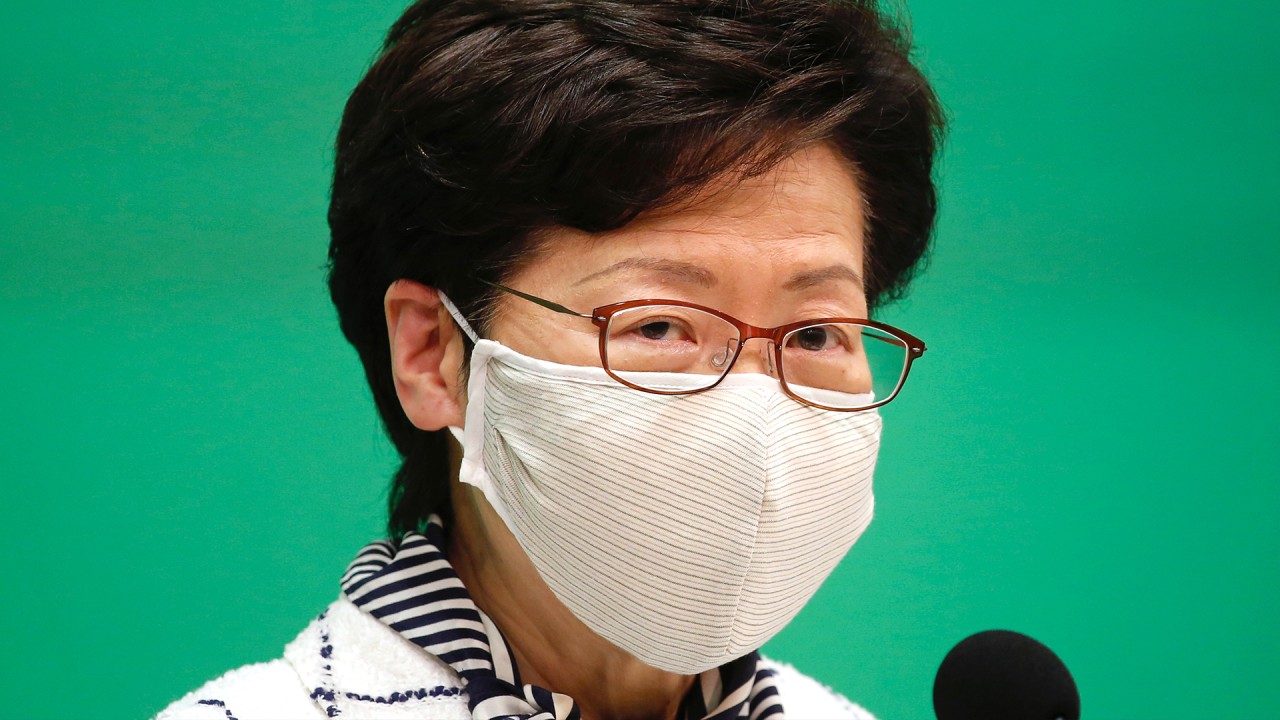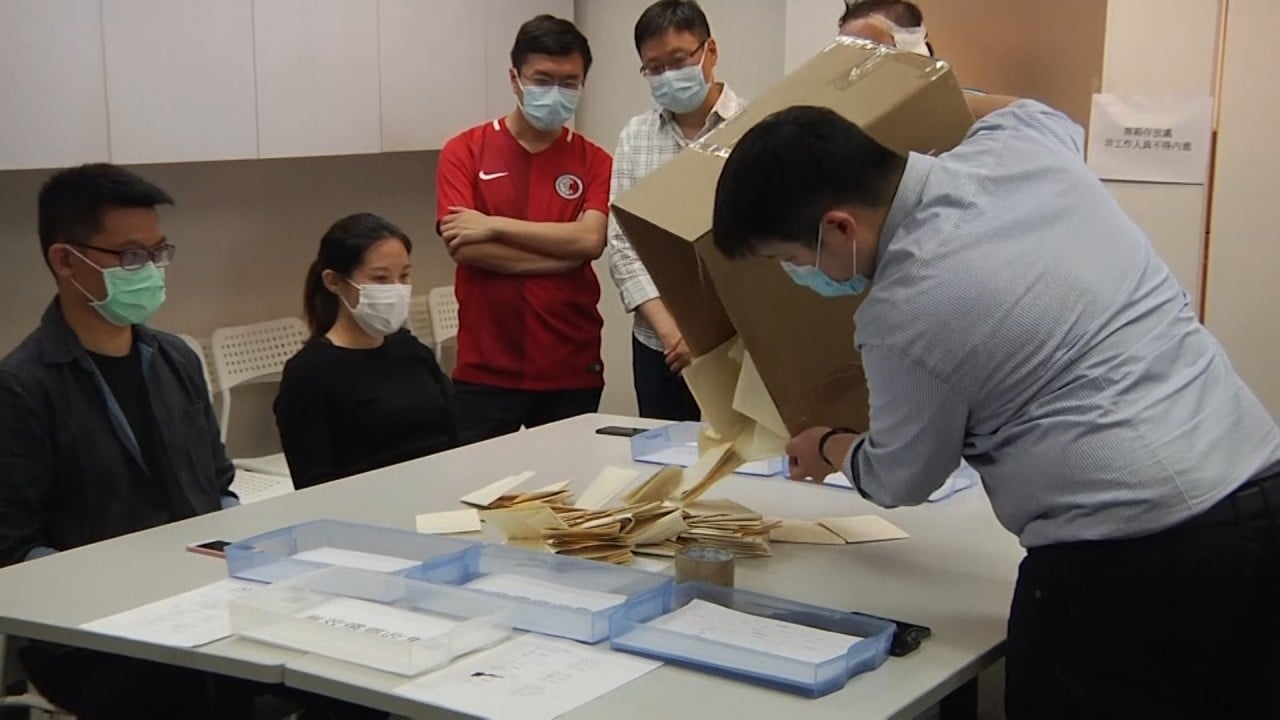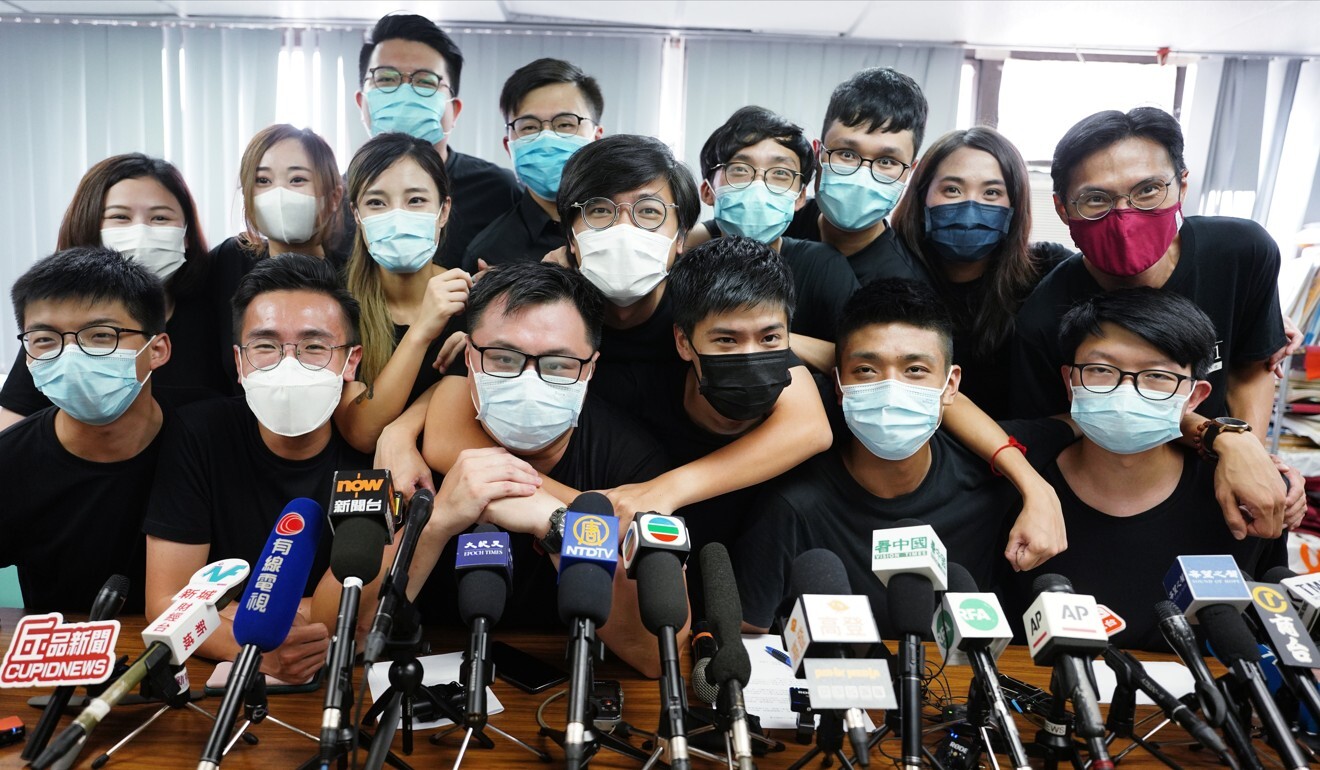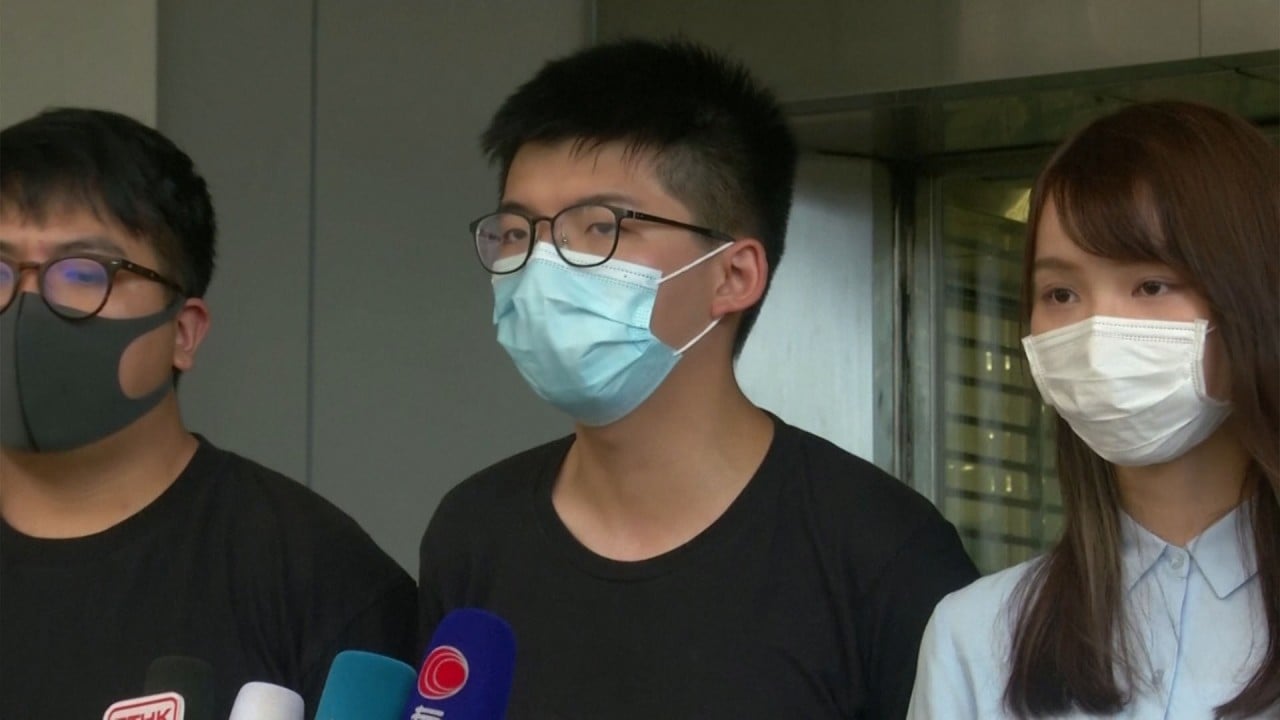
01:59
Hong Kong leader Carrie Lam says primary election might have violated national security law
Hong Kong elections: opposition hopefuls undecided over pledging allegiance to city, which is requirement of national security law
- Three hopefuls have already said they will not sign Electoral Affairs Commission form
- Joshua Wong among those still to decide, but localists say they will ‘relentlessly oppose’ new legislation
Opposition hopefuls vying for a seat in the Hong Kong legislature have been caught between a rock and a hard place, as they remain undecided on whether to pledge to uphold the mini-constitution and swear allegiance to the city.
In a statement on Thursday, the Electoral Affairs Commission (EAC) did not say whether candidates who did not sign would be stopped from running, but reiterated that submission of the form would be considered by returning officers before they determined if the nominations were valid.

02:07
More than 610,000 vote in Hong Kong’s pro-democracy opposition primary elections
The rift between the traditional parties of the camp and the so-called resistance bloc came under the spotlight during the primary. The newcomers, who largely outperformed the incumbent lawmakers in the polls, argued more confrontational tactics were needed in the current political climate.
Wu announced his stance in a Facebook post on Wednesday night with the sign off, #Don’tlosedignityforaseat.
“[I] will fight until the end, resist until the end … I won’t sign the confirmation form,” he wrote.
Hong Kong national security law official English version
So far, Wu, and People Power duo Raymond Chan Chi-chuen and Tam Tak-chi, are the only three candidates in the opposition camp who have said they would not sign the form.
The Democratic Party chairman’s allies, including Ted Hui Chi-fung and James To Kun-sun, remain undecided, with To believing that “signing it or not would not be decisive on the validity of the nominations”.
Four members of the Civic Party who vowed to run in the direct elections were not inclined to sign the form, but would seek legal advice before making a final decision, according to Jeremy Tam Man-ho, an incumbent lawmaker seeking another term in Kowloon East.
But the commission’s statement reminded prospective candidates that Article 6 of the new legislation stated that those standing for election “shall confirm in writing or take an oath” to uphold the Basic Law and swear allegiance to Hong Kong.
However, it also said whether a candidate’s nomination was valid or not was solely determined by the returning officer, according to “the legal requirements” and legal advice in view of the practical situations of each case.

Wong and his localist allies earlier expressed hope they could reach a consensus with the traditional pan-democrats on the stance, but insisted they would “relentlessly oppose” the new law.
Some localists had earlier indicated a willingness to sign the form if that did not require them to support the national security law, as they did not want to be disqualified for “technical reasons”.
The form was introduced by the EAC in the 2016 Legco elections after pro-independence activist Edward Leung Tin-kei scored a decent vote share of 15.4 per cent in a New Territories East by-election earlier that year.
The electoral authorities, and court rulings, had earlier confirmed that signing the form was not “a mandatory requirement” for the race, and candidates could sign it on “a voluntary basis”.
Leung was eventually banned from the race for his political stance despite signing the form, as the returning officer was not convinced he had genuinely ditched his separatist stance.
Some candidates from the moderate pan-democratic parties, such as the Democratic Party and the Civic Party, did not sign it but were still allowed to run. The imposition of the national security law could change all that.
National security law needs more clarity, legal experts say
Senior Counsel Anson Wong Man-kit said the law offered a new parameter for returning officers to evaluate whether a candidate’s nomination was valid.
“If one refuses to sign the confirmation form, he or she apparently falls foul of the new legislation,” he said. “I believe that it’d be one of the crucial factors for returning officers to consider the validity of the nominations.”
He said any potential disputes would have to be resolved in the courts.
Executive councillor Ronny Tong Ka-wah, also a senior counsel, believed returning officers would review the overall intention of a candidate, including previous public speeches, to decide whether they were upholding the Basic Law.
In a report released on Thursday, Civil Rights Observer warned authorities against “any unreasonable restrictions” in the upcoming election.

00:58
Security law 'affecting daily life of Hong Kongers', says activist Joshua Wong
“As declared in three recent successful election petitions, the disqualifications concerned were wrongful,” the report said.
“It is necessary for the government to act with restraint and stop screening candidates by restrictions that deviate from international human rights standards,” it said.

